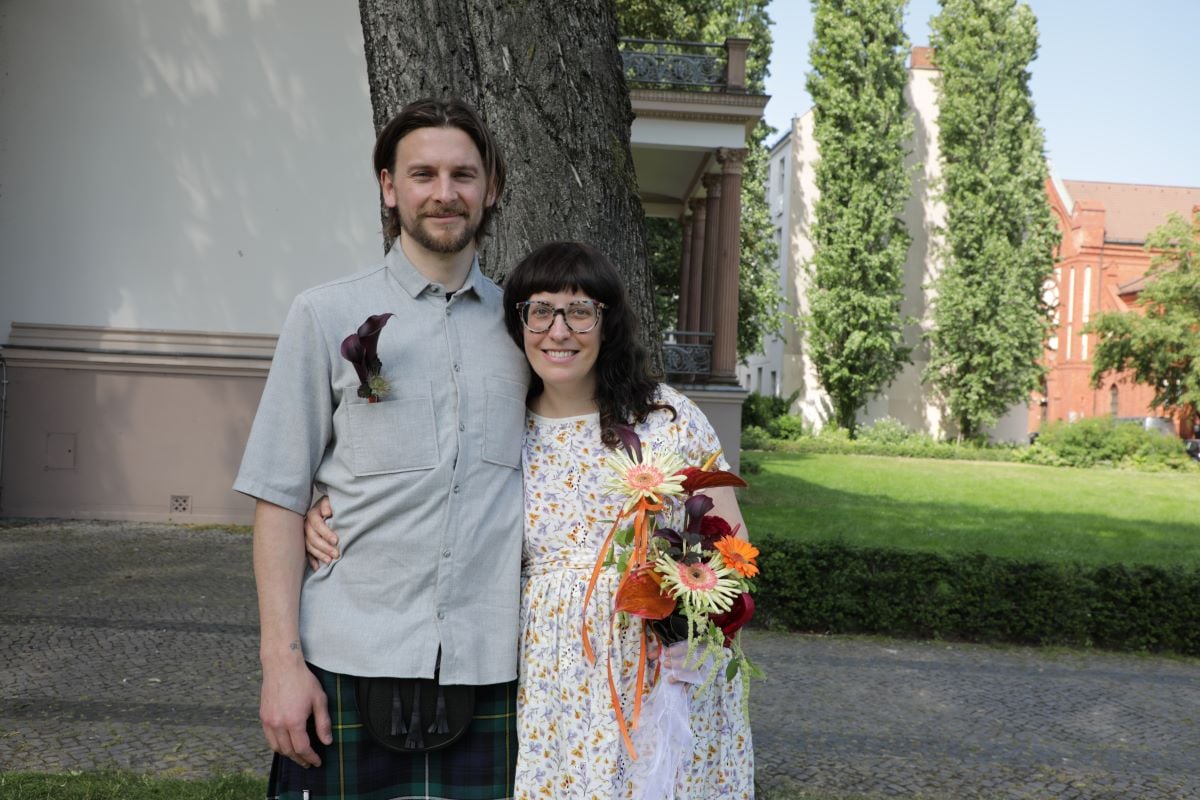Following mass nationwide demonstrations this year where protesters have called for an end to 'rent insanity', it's clear that housing is a big issue in Germany.
But when we reached out to our readers to ask their views on the housing market in Germany, particularly when it comes to renting, we were blown away by the responses. Internationals here have lots of concerns about the renting process, from rocketing prices to discriminatory landlords.
It comes after a German court ruled that a landlord had discriminated against foreigners after he placed an advertisement that said he would only lease his apartment “to Germans”.
Here are some of our readers' experiences.
SEE ALSO:
- Germans up in arms over 'rent insanity'
- 'Open discrimination of foreigners': Landlord fined after advertising flat to Germans
High rents make living in Munich 'impossible'
A recent report showed that on average Germany-wide, anyone who moved homes in autumn 2018 had to spend €7.06 per square metre per month for their new apartment – 3.9 percent more than in the previous year. These costs are for the Kaltmiete (cold rent) – before adding on bills and other costs.
In Munich, anyone who moved homes in the last few months of 2018 on average had to spend €16.54 per square meter, making it the most expensive place to rent in Germany. For our readers, Munich also stands out for that reason.
“Munich has a housing crisis, unfortunately, that doesn’t look like it will get better any time soon,” Carl, 43, from Sweden said.
“The rents are incredibly high even for a simple one or two bed apartment, but the worst thing is that the market is so competitive that it's almost impossible to even get a viewing.”
SEE ALSO: The ultimate guide to living in Munich on a budget
Others agreed, saying it's difficult to get a place in the southern state of Bavaria.
Omar, 27, from Egypt, said he found it “cheap and easy” to rent a place in Dresden, Saxony, but in Ingolstadt, Bavaria, “it was so expensive”.
But he said Munich is the worst. “It is near impossible to find reasonable rent prices,” he said.
Other readers had a similar thing to say, adding that the city is “very costly”.
“For a family you won’t find anything less than €2,000 (per month),” one respondent to our survey said.

Flats in Munich where it's difficult to find a place, according to our readers. Photo: DPA
Another reader who lives in Munich, said the outlook for renting in Germany is “terrible” and “extremely expensive.
“There are hundreds of people in a queue before you, for a single apartment, even when you’ve applied immediately.”
Rents better than home
Grant, 34, from Australia lived in Hamburg for five years and has just moved to Munich.
He said it’s a mixed picture in Germany, but that renting is much better value than his home city of Melbourne.
“The housing market in major cities in Germany is actually better and cheaper than my home (Australia) so I'm very happy about what you get for your money here,” he said. But he added: “Munich seems to be over-priced; however Berlin is unbelievably cheap.”
Another reader from the US said prices in Munich “are really crazy”.
Tamer, 35, from Egypt and now lives in Munich, said: “The rental prices are very high in Munich, it takes a significant part of your income and at the same time it's extremely hard to get one (an apartment).”
Another reader, Ajith, 32, who’s from India who also lives in Munich said the city is “unreasonably expensive”.
SEE ALSO: Three German cities ranked in the top 10 of the best places to live
“I have been searching for a house in the south of Munich for the past 4 months,” said Ajith. “It’s even hard to get a viewing. When we get a viewing opportunity there will be 25 people standing in a queue.”
Silviu, 38, from Romania, described the costs of renting in Munich as “exorbitant”.
City living doesn’t come cheap
Our readers found some other parts of Germany were also quite pricey. Cities such as Hamburg in the north, were deemed expensive for housing.
Tony, 31, from Ireland said renting costs in Hamburg were reasonable when he arrived two years ago. “€590 cold rent for two rooms was a good deal considering Dublin rents are triple that,” he said. But costs have increased dramatically now.
“Anything larger than 1-2 rooms is €1,100 cold,” Tony added.
Another reader from India, said it was “generally expensive” where he lives in Tettnang, Baden-Württemberg.
He remarked on the long drawn out process of trying to secure somewhere to live in Germany: “I stayed in Friedrichshafen before. It takes around 6 months to find a place.”
Annil, 39, from India who lives in Friedrichshafen, said it all depends on the demand and supply where you are.
“I think the prices are reasonable according to the flat sizes,” said Annil.
Vignesh, 28, from India said there was a “huge shortage of accommodation” in the area around Eningen in Baden-Würtemberg.
 Demonstrators against rising rent prices in Dresden on Saturday. Photo: DPA
Demonstrators against rising rent prices in Dresden on Saturday. Photo: DPA
“Prices in the region are too high,” Vignesh said.
Shaik, 30, who lives in Stuttgart found a similar situation. “It's very difficult to get a home. Forget about preferences to say the least. Costs are high and not negotiable due to high demand.”
Hauptstadt a mixed bag
In Berlin, although some people said rents were increasing dramatically, the issue of availability appeared more pressing.
SEE ALSO: The complete guide to how you can (still) live cheaply in Berlin
Carolyn from South Africa said it had become “notoriously difficult” to find a place in Berlin.
David from Chicago said rents are “sky-rocketing”. He said his 40 square metre apartment in the Kreuzberg area is “over €1,000 per month”.
“I’ve moved 18 times in the past six years,” he said, indicating that it can be hard to find a place to settle in Berlin.
Lots of readers pointed out that the process to secure a flat was difficult, too.
Meanwhile, Hilary, 33 from the US, said costs were reasonable in Berlin compared to New York.
“The number of applicants make the rental process particularly competitive,” she said. “We went to one viewing that definitely had over 20 people at it.”
SEE ALSO: Plan emerges for 'radical solution' to lower rising rents in Berlin
According to Mehdi, 30, from Iran, rents are increasing at a “rapid pace” in Berlin.
He said the process can be frustrating for foreigners, because private landlords might ignore the email “when they see a non-western name or an email written in English”.
Another survey respondent said costs to rent in Berlin have certainly gone up “but it still seems reasonable compared to other European areas”.
Robert, 50, from the US said: “Being a foreigner and freelancer, it is very difficult to get a landlord's attention when they have so many offers to choose from.”
Discrimination when house hunting
Rachel, 25, from New York said costs were “reasonable in Berlin but the process was “terrible”.
“The process not only allows but encourages landlords to act on their worst instincts and develop stereotypes based on attributes like gender and country of origin,” she said.
“The result hurts everyone: those who are not selected for arbitrary reasons are often forced to pay more for short-term options like Airbnb that drives up costs for everyone.”
SEE ALSO: Germany's housing crisis: Is development without displacement possible?
 An ad from a student looking for a flat in Freiburg. Photo: DPA
An ad from a student looking for a flat in Freiburg. Photo: DPA
Adarsh, who’s from India and lives in Munich said the process of finding somewhere to live is “daunting and frustrating for young male immigrants especially from Asian countries”.
“I seldom get calls to visit a house and in one instance was insulted by jokes about me blowing up the kitchen by cooking chicken curries,” he said. “When I said that i was vegetarian it got worse for me as it confirmed in the eyes of the landlord that I would be ‘cooking’ a lot.”
Adarsh said it frequently felt like landlords or people living in shared flats showed disinterest in him and would say within a few minutes of him entering that they were ‘looking for someone else who would be better fitting’.
Eno, 56, who lives in Heikendorf in Schleswig-Holstein said he found the flat-finding process to be “very discriminatory”.
'German housing market is unfriendly towards foreigners'
Another reader who lives in Saarbrucken in Saarland said finding an apartment there has been difficult.
“There is an easily observable passive discrimination towards non-German residents, which coupled with the limited housing market makes the whole situation quite messy.”
The reader, who asked to remain anonymous, added: “One instance of racism I faced was when a colleague of mine offered her apartment to me, and I sent my documents to the landlady, but I was refused, without any reason given.
SEE ALSO: How to join a Mieterverein (renter's association) in Germany
“So, on the whole, the German housing market is very unfriendly towards foreigners, or at least people from outside the EU.”
Tamer recounted some bad experiences.
“Being a Muslim family where the wife wears headscarf (i.e. Hijab), we got rejected just because of this headscarf,” Tamer told The Local. “ It was not communicated formally for sure but was just mentioned verbally through our relocation consultant.”
Sowmya, from India, lives in Hanover and said although rents are increasing, people are becoming a bit more open to renting flats out “to people from other countries”.
But language difficulties can be a problem.
“We always got negative replies for appointments and even sometimes when we got positive replies, after the appointment we stood no chance in the competition with other (German) clients,” said Sowmya.
Apartments with no kitchens
Pranshul, 21, an Indian resident from Dubai, who is studying in Jülich, North Rhine-Westphalia, said there are some points of the process that can be confusing for foreigners coming to Germany.
Those include the lack of furnished apartments when renting in Germany, including the fact there is sometimes no kitchen or flooring in properties, and tenants are expected to pay to build these “additions” themselves.
Other negative points included vague contracts that are difficult to understand and “the assumption by landlords” that everyone understands the process of renting an apartment in Germany, even though they may have just recently arrived in the country.
Grant added that he was surprised when he was about to move into a flat and found it completely stripped bare by the tenant “including the kitchen sink”.
 'Somewhere to live for all' protest sign at the recent 'rent madness' nationwide demonstration. Photo: DPA
'Somewhere to live for all' protest sign at the recent 'rent madness' nationwide demonstration. Photo: DPA
“I was particularly shocked when I first saw electrical wires hanging out of the ceiling,” he said. “And having to pay extra for a kitchen (or to buy someone else's) is just bizarre.”




 Please whitelist us to continue reading.
Please whitelist us to continue reading.
Member comments